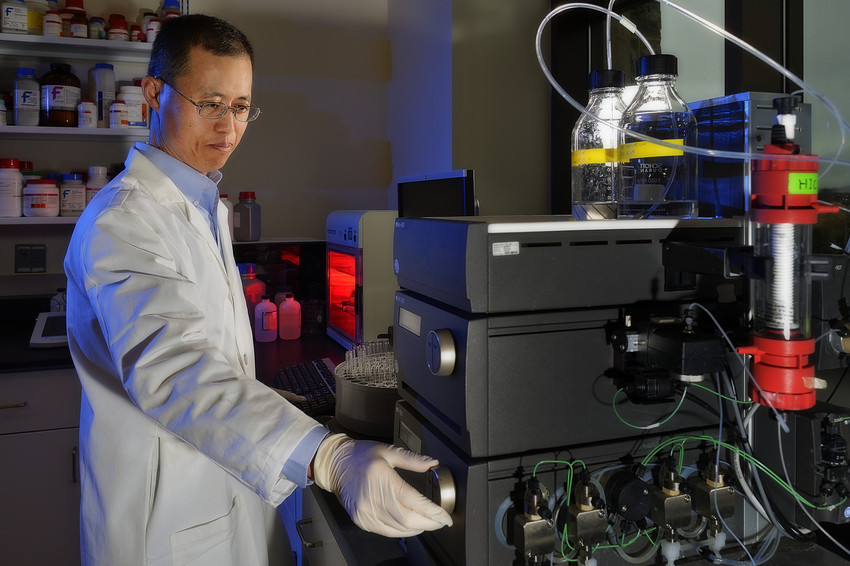Virginia Tech agricultural sciences programs rise in National Science Foundation rankings

Virginia Tech’s ranking of agricultural sciences research and development expenditures for 2013 rose to sixth in the nation, cementing the university and its scientists as international leaders in helping feed a quickly growing global population and sustainably managing the world’s forests.
The National Science Foundation said the $101 million in expenditures moved the university to the sixth spot, up from seventh. The figure is up 14 percent from four years ago.
The National Science Foundation defines agricultural sciences to include agricultural production, aquaculture, international agriculture, soil sciences, natural resources and conservation, landscape architecture, agricultural chemistry, agronomy, animal science, fish and wildlife, forestry, and horticulture.
Multiple programs and colleges contribute to agricultural sciences research and development expenditures, including the colleges of Agriculture and Life Sciences and Natural Resources and Environment, among others.
“The increase in ranking is not only an endorsement of the broad range and high level of research that our faculty spearheads, but also the research programs’ direct benefit to society,” said Saied Mostaghimi, associate dean of research in the College of Agriculture and Life Sciences and director of Virginia Agricultural Experiment Station.
Overall, Virginia Tech climbed to No. 38 in the NSF's annual survey of higher education research expenditures. With more than $496 million in research and development activity for fiscal year 2013, Virginia Tech remains the No. 1 academic research institution in Virginia and the No. 23 public research university.
Projects that are representative of research in agriculture sciences come from all corners of the university and address timely issues such as hunger and the food insecurity challenge, the obesity epidemic, and the energy crisis.
Among the many researchers in the College of Agriculture and Life Sciences who contributed to the rise in the rankings are Richard Veilleux, Julian and Margaret Gary professor of horticulture, who has completed groundbreaking research with mapping the potato genome, the world’s third largest crop.
In the Department of Biological Systems Engineering, Professor Mike Zhang is working on a vaccine that could help smokers conquer their nicotine addiction, making many smoking-related diseases and deaths relics of the 21st century.
Another faculty member, Bin Xu, an assistant professor of biochemistry, is examining the effect of a newly discovered hormone and its anti-inflammatory effects on the body.
Projects in the College of Natural Resources and Environment range from managing forests in the face of climate change to balancing human health and environmental sustainability.
Tom Fox, the Garland Gray professor of forestry, focuses on creating the knowledge needed to sustainably manage southern pine plantations so that they are better adapted to droughts, temperature extremes, and other variations in climate.
Kathleen Alexander, an associate professor of wildlife, examines the manner in which diseases are transmitted at the human-animal-environmental interface, including efforts to understand and combat the Ebola outbreak in West Africa.
Nearly 80 percent of Virginia Tech’s research portfolio is funded by competitive awards from the federal government and funding agencies such as the NSF, and the departments of defense, health and human services, transportation, agriculture, and energy. About 10 percent of funding is from commercial sources and industry partnerships.
Dedicated to its motto, Ut Prosim (That I May Serve), Virginia Tech takes a hands-on, engaging approach to education, preparing scholars to be leaders in their fields and communities. As the commonwealth’s most comprehensive university and its leading research institution, Virginia Tech offers 240 undergraduate and graduate degree programs to more than 31,000 students and manages a research portfolio of $513 million. The university fulfills its land-grant mission of transforming knowledge to practice through technological leadership and by fueling economic growth and job creation locally, regionally, and across Virginia.



